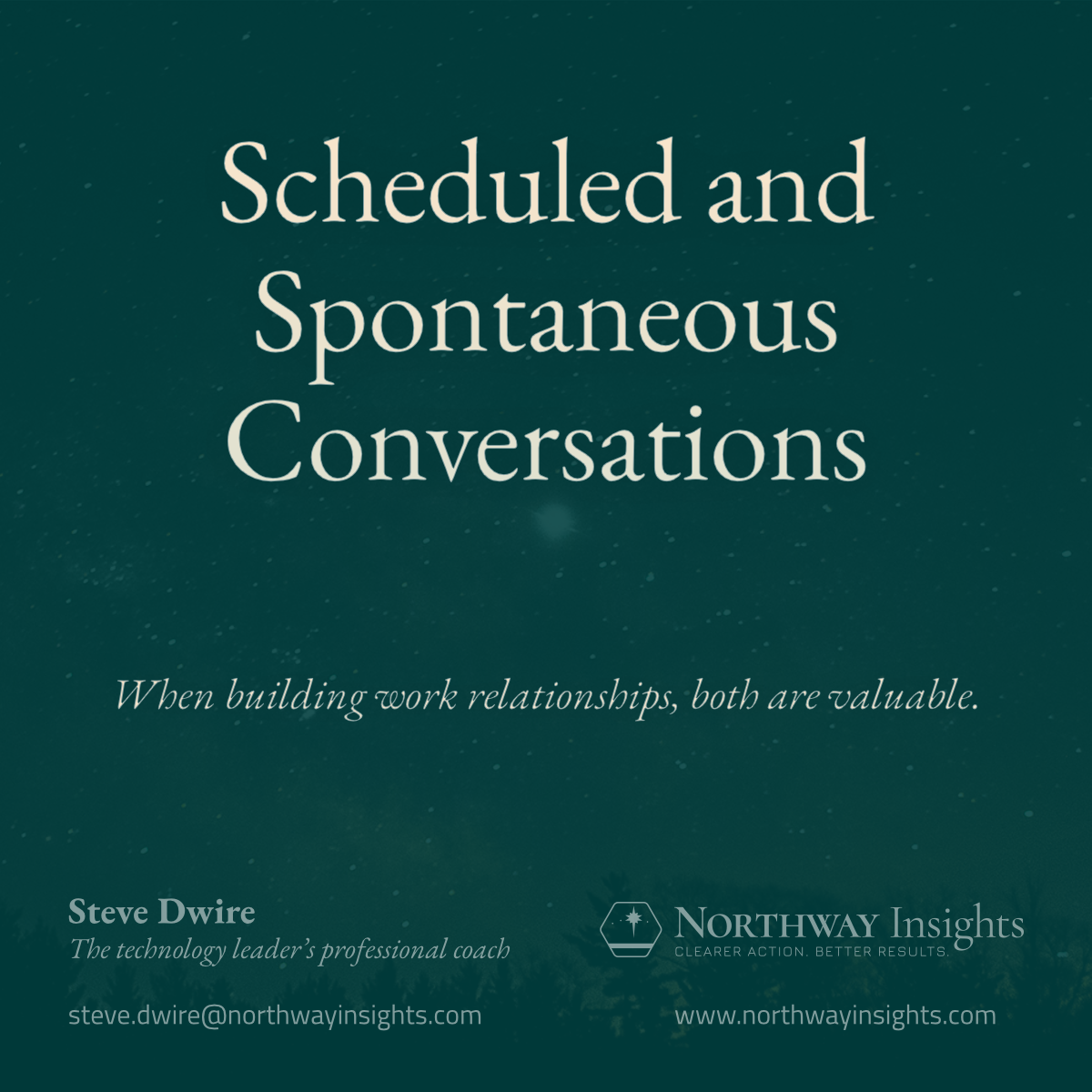“We talk all the time. Why should I schedule one-on-ones?”
“We have our one-on-ones. Isn’t that enough?”
I’ve heard both extremes from managers who want to stick to their preferred style.
But leaving out either scheduled or spontaneous conversations can leave team members disengaged.
✅ With one-on-one conversations scheduled every one or two weeks, it is the predictable frequency of the conversation that lets people know they’re valued. They know that they are important enough for you to reserve time to meet with them.
⚠️ Caution: Studies have shown that one-on-ones scheduled monthly or less frequently communicate just the opposite. The infrequency of the schedule shows a lack of interest and creates distance.
✅ Spontaneous conversations in the hallway or via phone or instant message let people know that you talk with them because you want to, because you care about them. Those side discussions, checking in with them about family and other non-work areas, also give them a chance to make a connection on a more personal level.
⚠️ Caution: Be sensitive to the individual boundaries of each person. Watch for signs that the topic, timing, or duration of a personal discussion are getting close to those boundaries, and end the conversation gracefully.


Leave a Reply